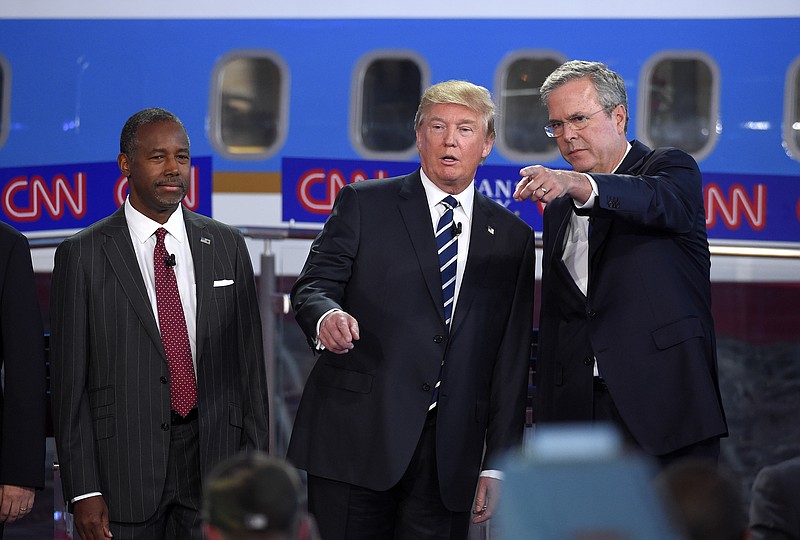Read more
* Ben Carson draws hundreds to Barnes and Noble in Chattanooga * TN party chief calls Ben Carson 'worst of the worst' among GOP presidential hopefuls* Presidential hopeful Ben Carson discusses gun control before Chattanooga visit
Much has been written about the "establishment" revolt within the GOP, with the highest poll numbers currently held by Donald Trump, Dr. Ben Carson and Carly Fiorina. Each has his or her own private sector resume.
At the heart of the "establishment's" problem is an aspect of politics that has been rejected in all areas of private business except where a job is artificially secured by a labor union or civil service protection, and that is ascension solely based on seniority.
In 1996, former U.S. Sen. Bob Dole, a war hero and a less-than-charismatic Kansan, topped the GOP ticket at age 73. It was a disaster. Dole's longevity in the Grand Old Party was noted among his key attributes that would appeal to center-right voters to turn out on Election Day against President Bill Clinton. That wasn't the case.
In 2008, the pattern was repeated. U.S. Sen. John McCain, a war hero and long-tenured politician at age 72, was tapped as the GOP presidential nominee but failed to persuade the voting public to hire him for the country's top post.
Nothing against war heroes or those whose constituents re-elect them for years, but seniority doesn't always supply qualified leaders.
In 2012, Mitt Romney ran against a field of legislators with no executive experience: then-sitting U.S. Rep. Ron Paul, and two former members of Congress, Sen. Rick Santorum and Rep. Newt Gingrich. Romney's business and executive successes in balancing budgets, managing personnel and projects gained acceptance on the GOP side as the preferred criteria rather than work as a Beltway bureaucrat. Extensive experience in halls of power in Congress was not enough.
The large field of current GOP candidates has captured headlines and given pundits plenty to chew on. In the lead, however, are the three outsiders who have consistently polled favorably and bear no resemblance to those who have spent years on a government payroll.
Voters seeking fresh leadership, problem-solving skills and a practical, business approach view party "seniority" as a hurdle. They are tired of those who "want their turn" or spin their campaign rhetoric that really does nothing more than protect the status quo. It is time for the talented - not the tenured - to take center stage.
The same issue is in play on the left. Hillary Clinton enjoys 100 percent name recognition, but her "seniority" as a former first lady, U.S. senator and secretary of state does not translate into guaranteed support.
Jim Collins, author of "Good to Great" and other business books, observed that, "The purpose of bureaucracy is to compensate for incompetence and lack of discipline."
That certainly rings true of too many aspects of our federal government at the moment.
As the GOP presidential candidates make their way to February 2016 - when votes are first cast in New Hampshire - it's clear that much of the "anti-establishment" sentiment stems from frustration with the stale, status quo.
Will the public's desire prevail for actions characteristic of the private sector where goals are set and met, budgets are balanced and honored, and seniority wins only if it's founded on effective leadership?
The new demand has stretched the otherwise poll-driven politicians and hopefully reminds us of the distinction between seniority and leadership.
Robin Smith, a former chairwoman of the Tennessee Republican Party, is owner of Rivers Edge Alliance.
